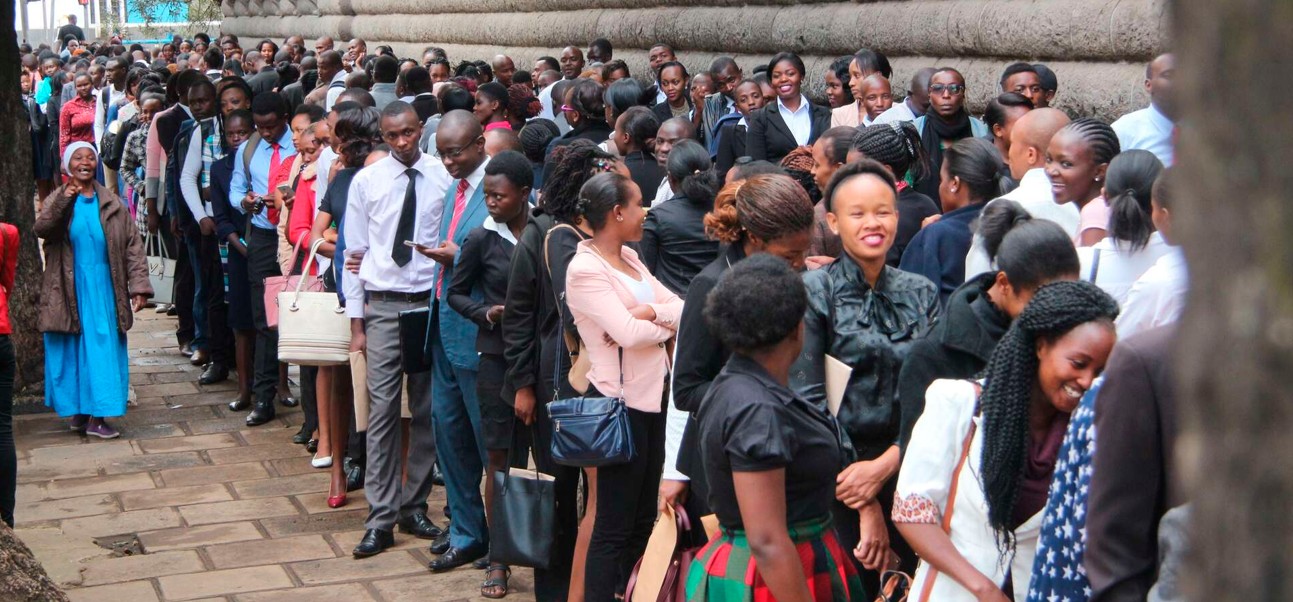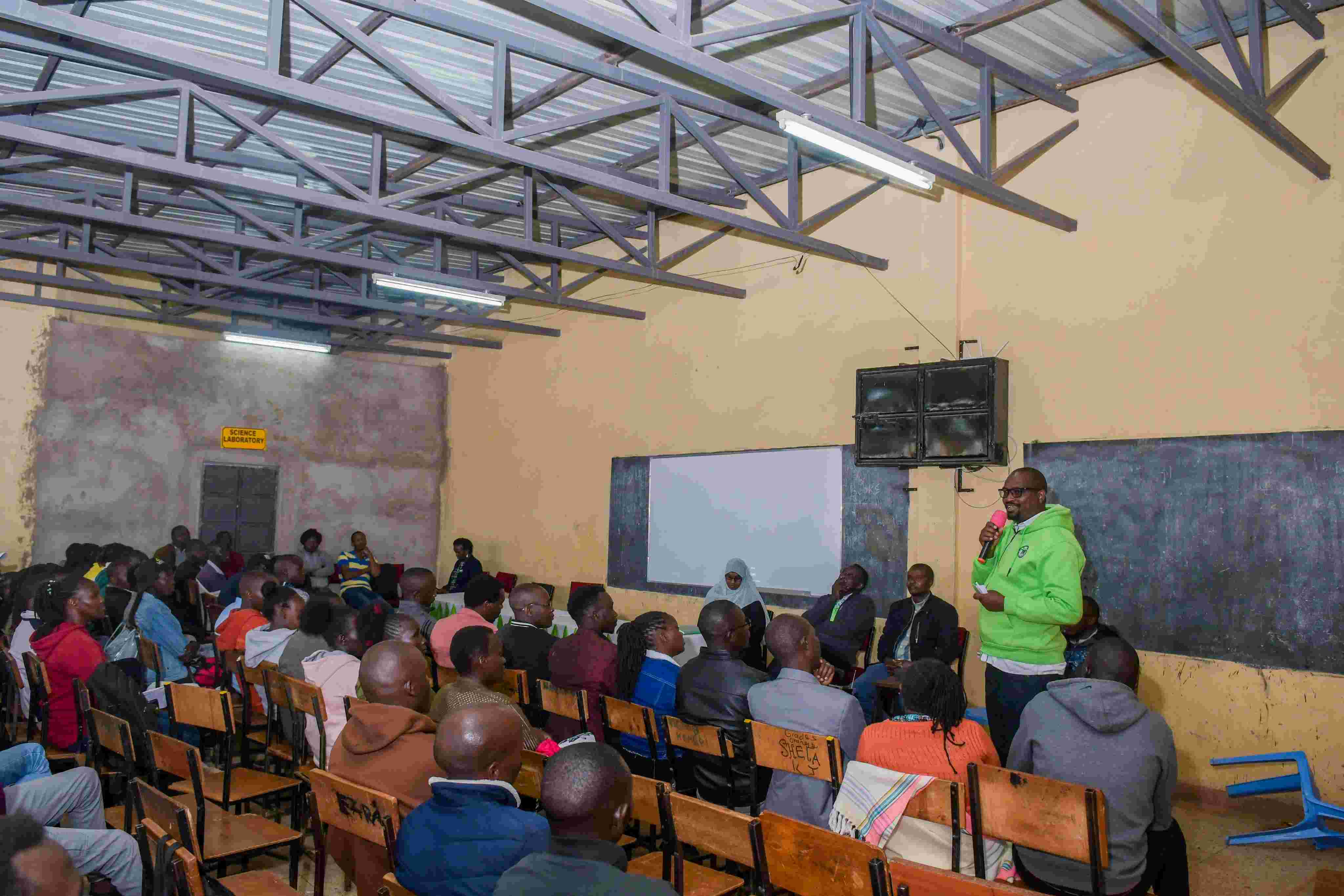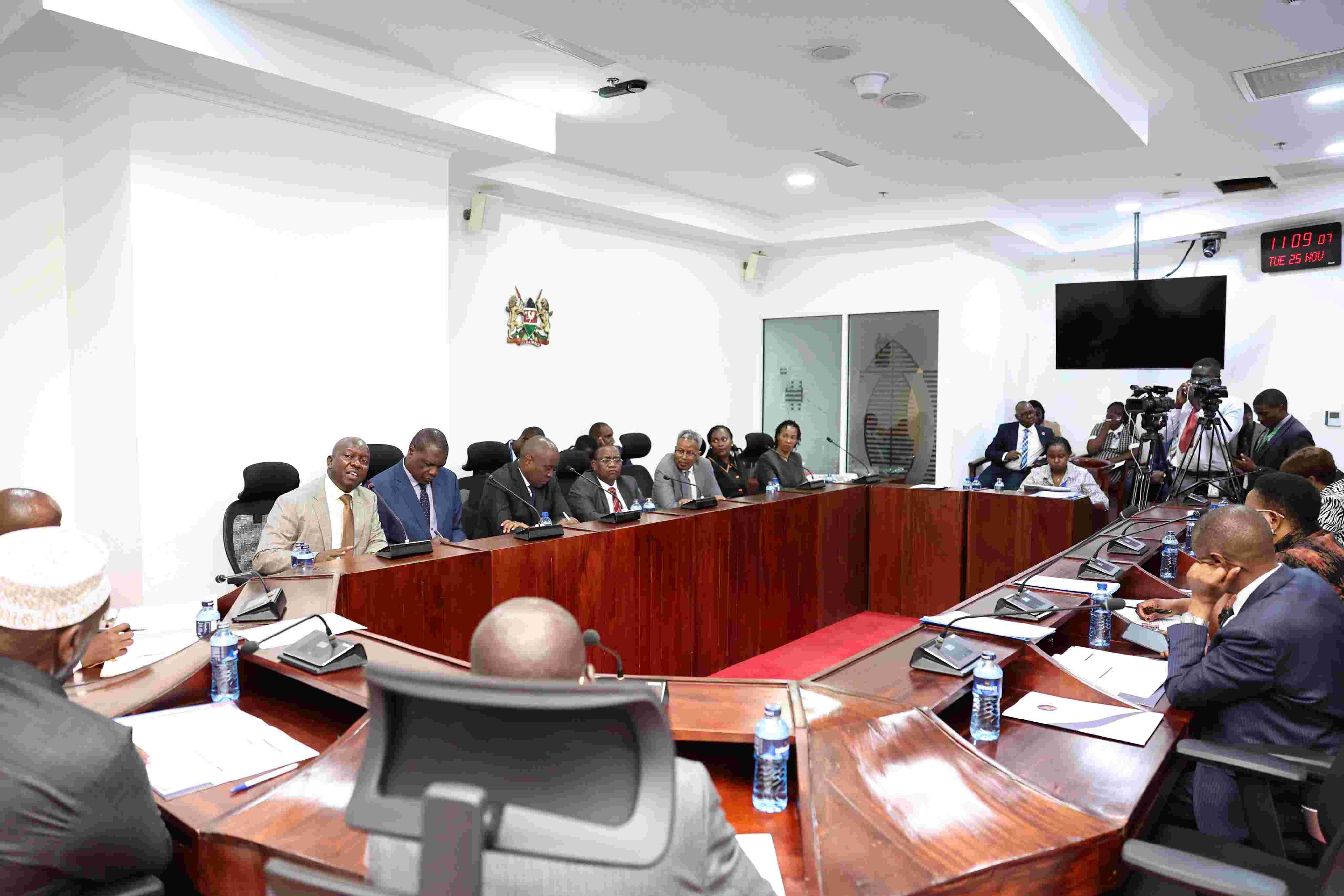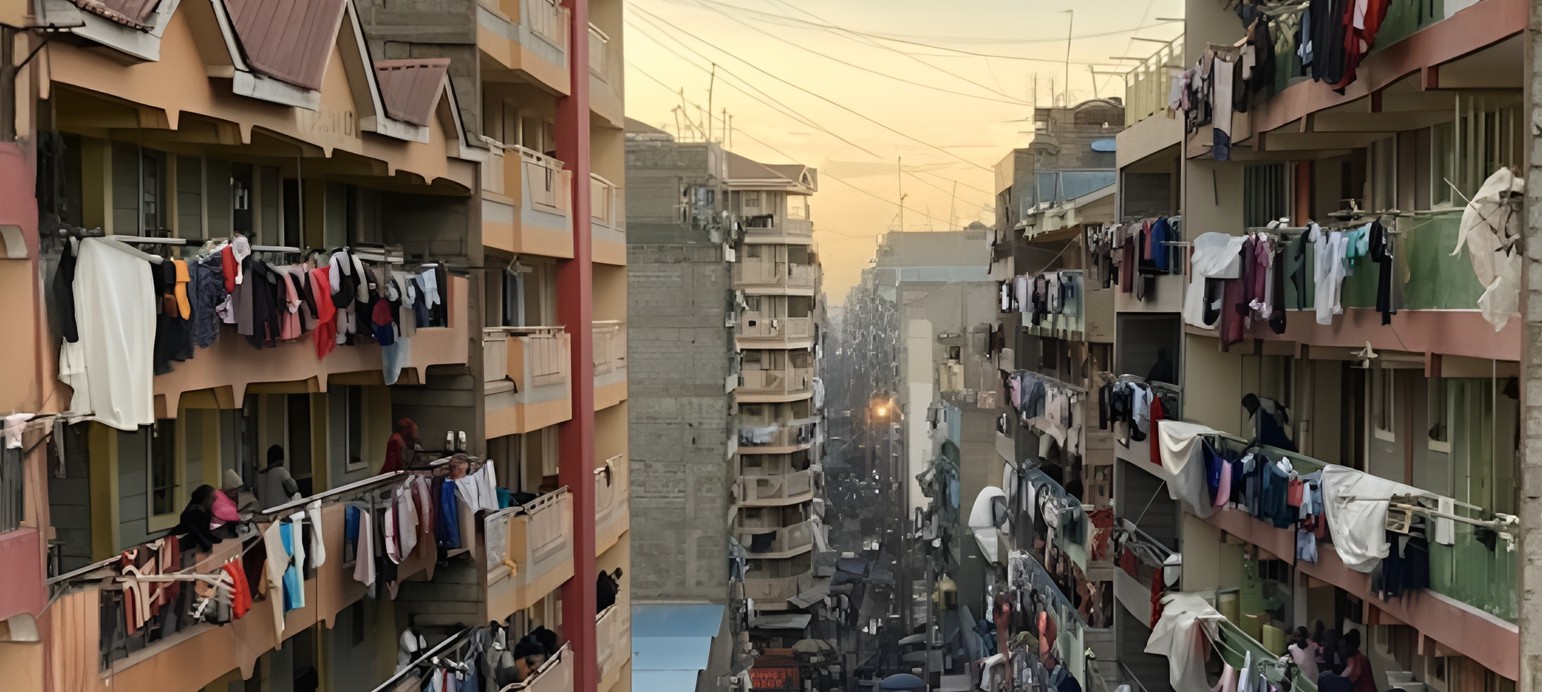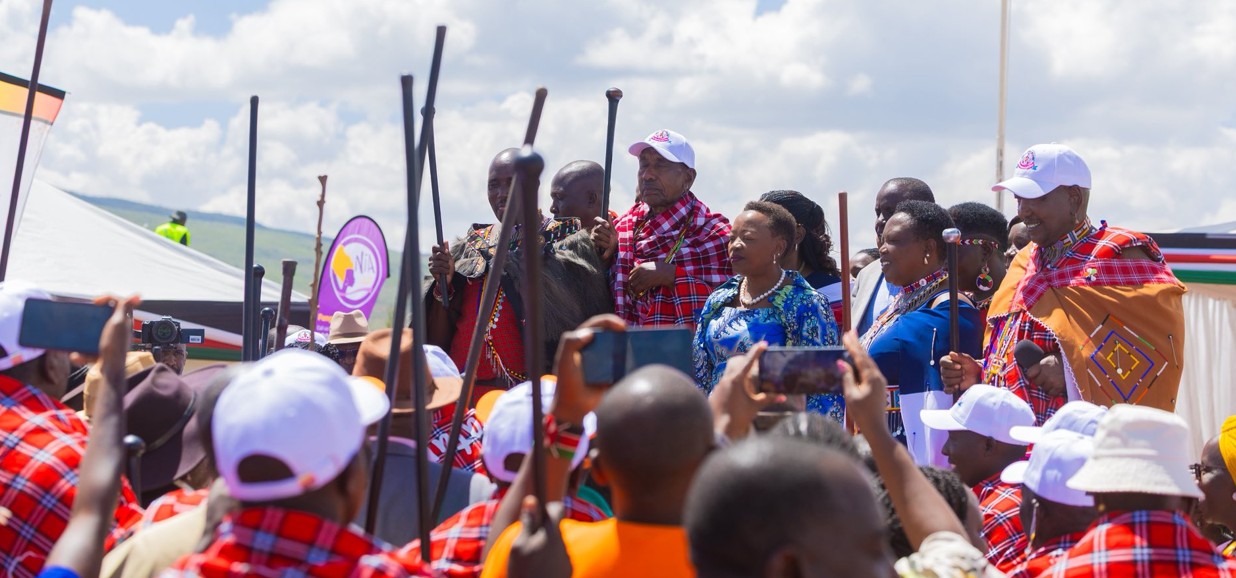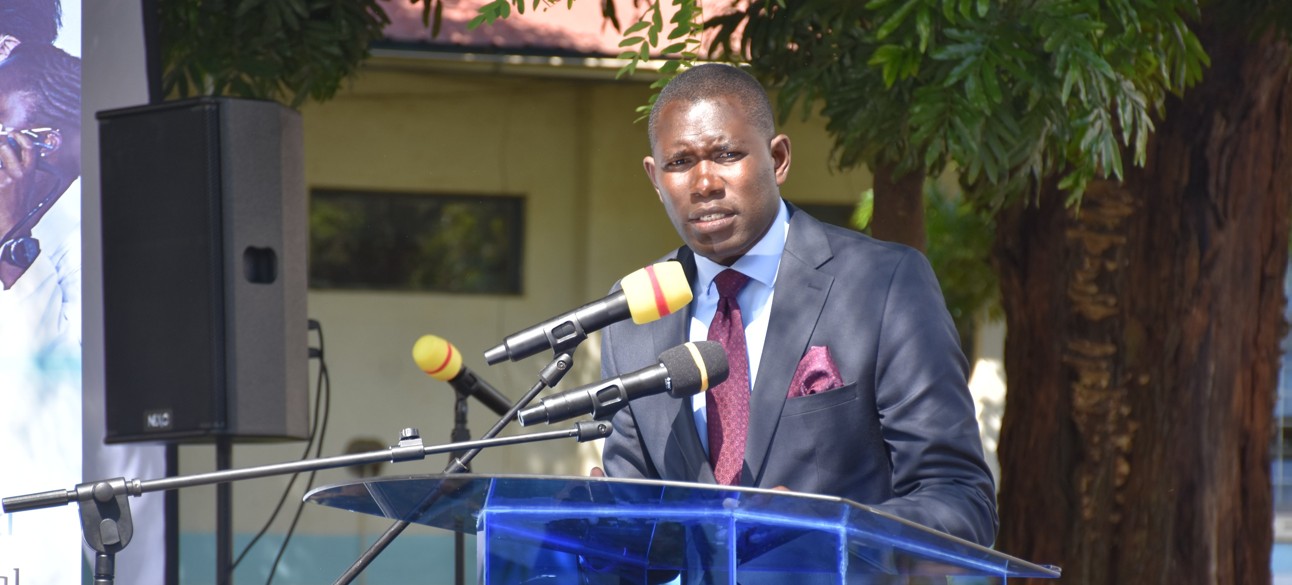MPs start debate on controversial protests bill that caused backlash
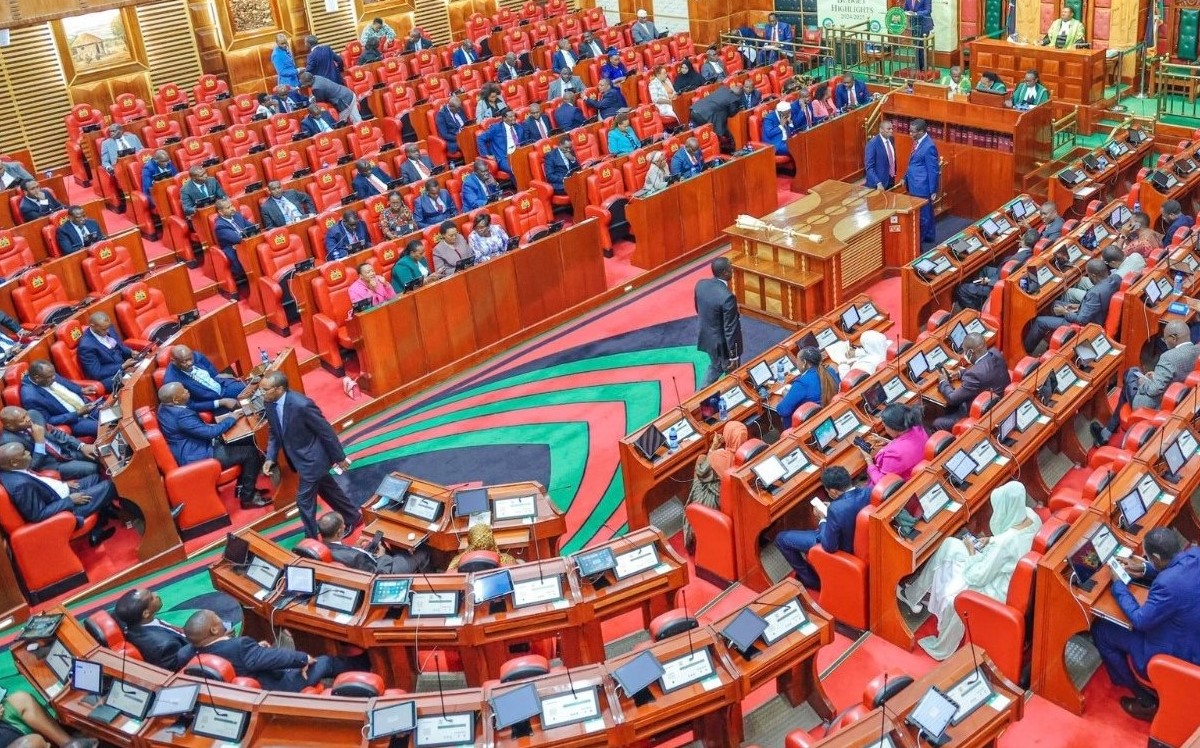
The bill’s first reading proceeded despite its sponsor, Mbeere North MP Geoffrey Kiringa Ruku, having assured Kenyans he would withdraw it following a backlash.
A highly contested bill that seeks to regulate the right to assembly has today gone through the first reading at the National Assembly.
In a shocking turn of events, the bill’s first reading proceeded despite its sponsor, Mbeere North MP Geoffrey Kiringa Ruku, having assured Kenyans he would withdraw it following a backlash.
More To Read
- Government extends mandate of police, NYS reforms committee by nine months
- Terrorism or protest? What Kenyan law says about anti-government demos and charges
- Lobby demands independent inquiry into protest deaths, including Albert Ojwang’s custody case
- Government sued for blocking CBD roads during protests, lobby demands removal of barricades
- Protest essentials: A look into what to carry to stay safe, alert, and resilient
- Public Service CS Ruku leads aid effort in Kibra, pledges full implementation of disaster plan
"I have heard the voice of Kenyans and, therefore, decided to withdraw the Assembly and Demonstrations Bill, 2024. I will officially be writing to the Speaker of the National Assembly to withdraw the #MaandamanoBill," the MP said in a post on X on June 27.
The bill seeks to tighten laws around the right to assembly, with offenders risking a one-year imprisonment or a Sh100,000 fine.
Immediately after it was proposed, Kenyans and human rights organisations described it as punitive, reactive, retrogressive and requiring significant revisions to align it with human rights standards.
However, the MP said that it was founded on the need to give effect to Article 37 of the Constitution and to enhance the safety of Kenyans and the security of protestors, non-protestors and businesses.
"However, I have agreed with the will of Kenyans that the bill be withdrawn," Ruku said earlier.
According to the National Assembly's Standing Orders, a bill is formally introduced to parliament when its title is read by the clerk to the assembled House.
On Wednesday morning, the clerk of the National Assembly stated that the bill was going through the first reading and he read it as listed at number 10 on the day’s order paper.
Next, the bill will be committed to the concerned committee, in this case, the Administration and Internal Security Committee, which will take it through public participation or further amendments before proceeding to the second and third readings.
Show faces
The bill proposes to make it mandatory for Kenyans participating in protests to reveal their faces or face imprisonment for one year or pay a fine of Sh100,000.
"A person shall not, at an assembly or demonstration, wear a disguise or any other apparel or item which obscures his face or prevents his identification," the bill states.
It also seeks to enforce accountability and transparency on conveners of protests and participants in the event of property damage and to help the police in crowd control.
The bill further states that where property damage occurs as a result of the assembly or demonstration, every participating organisation or person will be held liable.
At the same time, those accused will be required to provide sufficient proof that they took all reasonable steps to prevent the act leading to the damage, failure to which they will be prosecuted.
It also seeks to prohibit protestors from wearing any form of apparel that resembles uniforms worn by security forces or possessing any offensive weapon.
It further gives the police liberty to prevent protesters from deviating to a route different from the one specified in the notice of protest.
One-sided proposals
Human rights organisations said the proposals are one-sided and fail to address the interests of protestors whose act of assembly is protected by law.
In a statement issued under their umbrella body, the Police Reforms Working Group Kenya in June, the civil rights groups added that the proposals by the Mbeere North MP fail to address critical contemporary issues in public management and the necessary reforms.
"The bill introduced new charges such as cleaning fees and conditional assemblies as advised by a regulating officer, curtails the manner of assembly and the paraphernalia used, introduces extreme penalties and liabilities on organisers and expands the allowable time frames for assemblies beyond reasonable limits," the statement said.
Pressed to explain why he announced his earlier decision to withdraw the bill and what issue he sought to address with the bill, the MP said, "Kenyans have said they do not want any explanations. They have said we need to listen to them. If Kenyans say No to Maandamano Bill, we also say No. If Kenyans ask us to jump, we ask them how high we should jump. If they ask us to reason with them, then we reason with them.”
The bill appears to have garnered support from some quarters of government.
"Part of the reason to regulate and firmly deal with violent and chaotic protests is that protesters do not internalise the cost of their actions. This cost is transferred and borne by someone the – private sector. Like pollution, violent protests must be regulated before they cause irredeemable public cost," Foreign Affairs Permanent Secretary Korir Sing'Oei said on Tuesday.
Top Stories Today


